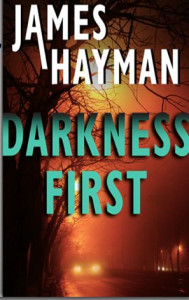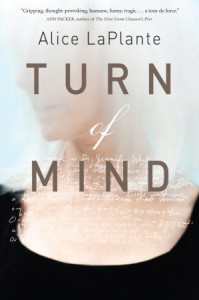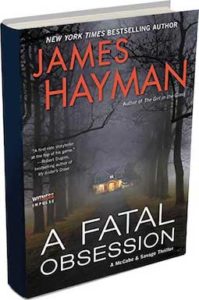Crime Writers Beware: You Can’t Make This Stuff Up.
Thursday, August 29th, 2013In my last post I wrote about unusual ways of knocking off victims in crime novels. This post I’ll be writing about one of the weirdest reasons to kill anyone I’ve ever come across. Karaoke. And guess what? It’s not fiction. It seems that people who sing Karaoke…especially Frank Sinatra’s My Way and John Denver’s “Country Roads” in bars in places like Malaysia, Thailand, China and the Phillipines are getting gunned down or hacked to death largely because of what they decide to sing.
My first clue that this was actually happening came in an article I found not in the National Enquirer where I might have expected it , but in America’s most respected “Gray Lady”, our “newspaper of record,” the New York Times.
Under the headline “Karaoke Killing,” the Times reported:
“A 23-year-old Malaysian man was killed on Thursday night after reportedly enraging other customers who felt that he “hogged the microphone” at what Malaysia’s Star Online described as “a coffeeshop-cum-karaoke outlet” in the town of Sandakan, on the island of Borneo.
The Guardian’s Ian MacKinnon adds some regional context:
Karaoke rage is not unheard of in Asia. There have been several reported cases of singers being assaulted, shot or stabbed mid-performance, usually over how songs are sung.
Frank Sinatra’s “My Way” has reportedly generated so many outbursts of hostility that some bars in the Philippines now do not offer it on the karaoke menu anymore. In Thailand this year, a gunman shot eight people dead after tiring of their endless renditions of a John Denver tune.”
A little further research via Google revealed the John Denver tune in question was “Take Me Home Country Roads.”
Britain’s Daily Telegraph, a generally staid and politically conservative paper, reported last March that “John Denver Karaoke Sparks Thai Killing Spree.” According to the article
“A gunman in Thailand shot-dead eight neighbours, including his brother-in-law, after tiring of their karaoke versions of popular songs, including John Denver’s Country Roads.
Weenus Chumkamnerd, 52, put his gun to the head of a respected female doctor and seven of her guests as they partied at her home in Songkhla Province, South Thailand
“When I began shooting nobody pleaded for his life because they were all drunk,” he said after his arrest.
He said he was so furious with their awful singing that he did not notice he had murdered his own brother-in-law.
“I warned these people about their noisy karaoke parties. I said if they carried on I would go down and shoot them. I had told them if I couldn’t talk sense into them I would come back and finish them off,” he added.
Apparently he couldn’t talk sense into them. A third and even more horrific example of Asian Karaoke killings was reported by the Telegraph exactly one year ago today on August 30, 2012. The headline read: Chinese Toddler’s Karaoke Tantrum Ends in Bloodbath “
The article went on to report: 
“A Chinese toddler’s refusal to give up the microphone during a family karaoke evening started a quarrel that left two men hacked to death with a meat cleaver.
The evening began jovially enough when Mr Yun, the owner of a noodle shop in the central Chinese city of Xi’an, invited his family to celebrate Qixi, China’s Valentine’s Day, with a singing session at a local karaoke parlour.
But by 11pm, there was discord in the room. Mr Yun’s four-year-old son was hogging the microphone and his parents were indulging him.
Two of the boy’s uncles began chastising Mr Yun and his wife for having raised a spoilt child; a “Little Emperor”, as the Chinese say.
According to the Xi’an police, the argument became heated to the point where the two uncles began pushing, and then punching, Mr Yun.
Finally, Mr Yun’s nephew, who also worked in the noodle shop, ran back to the restaurant and fetched a meat cleaver.
The man, named as Mr Hui, hacked the two uncles to death, inflicting at least ten wounds on each uncle. He has since been arrested.
Lest you think these cases are unusual, just try Googling “Karaoke Murders Asia.” When I did I got 3,460,000 hits. Admittedly many of these must be repeats of the same stories but still…
Now in our roles as crime writers we are charged with coming up with interesting and unusual motives for murder. But I have a feeling that if any of us (with the possible exception of James Patterson who can get away with anything) ever tried in a million years to make the motive for murder somebody singing a Frank Sinatra song in an Asian Karaoke bar, your editor would laugh you out of the room. Which would be bad, unless of course you were Carl Hiaasen who likes making his editors laugh.
 Darkness First is the first novel in the McCabe/Savage series to feature Detective Maggie Savage, McCabe’s partner, as the key protagonist. Most of the story is told from her point of view. As a male writer I wanted to try writing a novel primarily from a female point of view which turned out to be interesting, especially when it came to describing the sex scenes. The book is also the first of the series that takes place primarily outside of Portland.
Darkness First is the first novel in the McCabe/Savage series to feature Detective Maggie Savage, McCabe’s partner, as the key protagonist. Most of the story is told from her point of view. As a male writer I wanted to try writing a novel primarily from a female point of view which turned out to be interesting, especially when it came to describing the sex scenes. The book is also the first of the series that takes place primarily outside of Portland.



